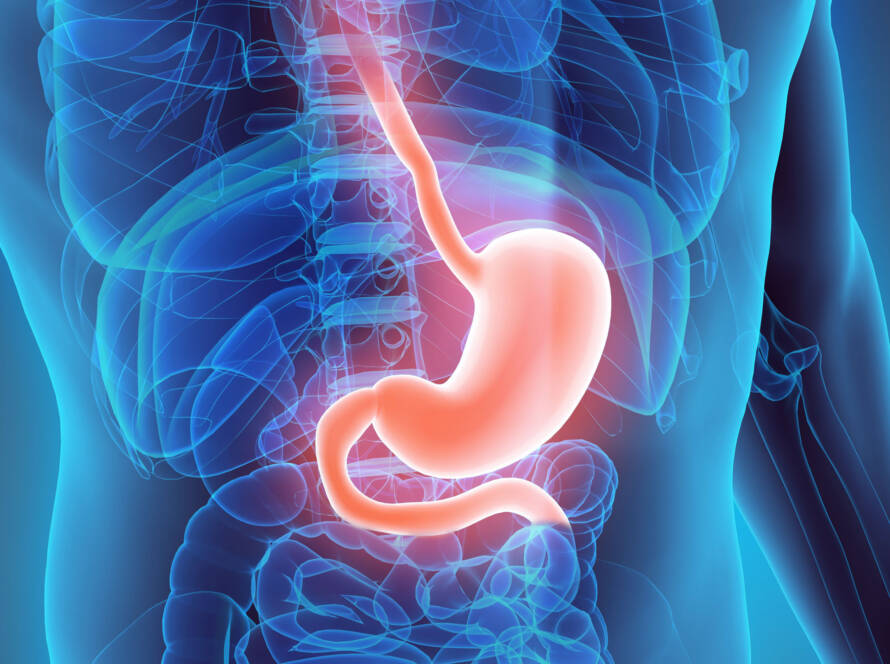Obesity, one of the most common diseases of the modern age, is a serious health issue because it plays a role in the development of acute or chronic types of deadly diseases, as well as problems in the body. It causes an esthetically unwanted appearance, as well as psychological disorders, as well as obesity, which is a risk factor for acute or chronic diseases. For this reason, all individuals who want to maintain their health need to maintain their ideal weight, while patients with obesity problems need to achieve their ideal weight under the leadership of physicians and dieticians.
What is obesity?
In general, obesity is a condition where the amount of fat mass in the human body has increased significantly compared to the oil-free mass, which includes other components such as bone, muscle, and water. In another definition, obesity can be specified as a greater body mass than the length of the body. The excessive increase in network tissue is among the primary causes of most chronic diseases, such as insulin resistance and diabetes (diabetes). Obesity disease is a treatable disease that can be prevented by some applications that support the diet and diet. However, in serious obesity patients with an advanced fatality, especially in the case of serious complications, treatment can also be performed with obesity surgery applications such as tube stomach, stomach reduction, and gastric bypass, by physician recommendations. These methods can also be referred to as bariatric surgical applications.
What are the symptoms of obesity?
The most fundamental symptom of obesity is an excessive accumulation of fatty tissue in the body. However, the excess weight can be the visual problems of obesity, as well as some health problems. The problem and symptoms that arise due to obesity include:
Sweating problem
Rapid fatigue problem
shortness of breath
Snoring and sleeping apnea
skin problems
Back and joint pain
Psychological problems and self-esteem reduction
Individuals with too many weight problems to prevent the occurrence of all these problems and prevent chronic diseases that may be associated with obesity must be attenuated and take care to maintain their ideal weight before reaching the size of obesity.
What causes obesity?
The most fundamental cause of obesity is that the energy absorbed together with nutrients is greater than the energy spent with metabolism and physical activity, and consequently the increased energy is stored in the form of oil. This is caused by the continued energy intake over the requirement for a certain period of time. Weakness, obesity and obesity are evaluated in a method called body mass index (BMI). Obesity patients are patients whose body mass index is 30 and above, which can also be considered as a type of obesity test. This value, also called the body mass index (BMI), is calculated by dividing the body mass in kilograms by the square of the size in meters. According to the body mass index (BMI) used to calculate obesity in accordance with the classification set by the World Health Organization, it is classified as
Under 18.5 — Low Weight
18.5 – 24.9 — Regular Weight
25.0 – 29.9 — Overweight
30.0 – 39.9 — Obese
Over 40.5 — Morbid (serious)
50 and above — it’s designated as super obese.
The excess energy that causes obesity can occur due to unhealthy or unbalanced nutrition, and some genetic predisposition may be the basis for obesity. In addition, hormonal disorders, thyroid diseases, use of some medicines can also be among the causes of obesity.
What is obesity?
In general, obesity is a condition where the amount of fat mass in the human body has increased significantly compared to the oil-free mass, which includes other components such as bone, muscle, and water. In another definition, obesity can be specified as a greater body mass than the length of the body. The excessive increase in network tissue is among the primary causes of most chronic diseases, such as insulin resistance and diabetes (diabetes). Obesity disease is a treatable disease that can be prevented by some applications that support the diet and diet. However, in serious obesity patients with an advanced fatality, especially in the case of serious complications, treatment can also be performed with obesity surgery applications such as tube stomach, stomach reduction, and gastric bypass, by physician recommendations. These methods can also be referred to as bariatric surgical applications.
What are the symptoms of obesity?
The most fundamental symptom of obesity is an excessive accumulation of fatty tissue in the body. However, the excess weight can be the visual problems of obesity, as well as some health problems. The problem and symptoms that arise due to obesity include:
Sweating problem
Rapid fatigue problem
shortness of breath
Snoring and sleeping apnea
skin problems
Back and joint pain
Psychological problems and self-esteem reduction
Individuals with too many weight problems to prevent the occurrence of all these problems and prevent chronic diseases that may be associated with obesity must be attenuated and take care to maintain their ideal weight before reaching the size of obesity.
What causes obesity?
The most fundamental cause of obesity is that the energy absorbed together with nutrients is greater than the energy spent with metabolism and physical activity, and consequently the increased energy is stored in the form of oil. This is caused by the continued energy intake over the requirement for a certain period of time. Weakness, obesity and obesity are evaluated in a method called body mass index (BMI). Obesity patients are patients whose body mass index is 30 and above, which can also be considered as a type of obesity test. This value, also called the body mass index (BMI), is calculated by dividing the body mass in kilograms by the square of the size in meters. According to the body mass index (BMI) used to calculate obesity in accordance with the classification set by the World Health Organization, it is classified as
Under 18.5 — Low Weight
18.5 – 24.9 — Regular Weight
25.0 – 29.9 — Overweight
30.0 – 39.9 — Obese
Over 40.5 — Morbid (serious)
50 and above — it’s designated as super obese.
The excess energy that causes obesity can occur due to unhealthy or unbalanced nutrition, and some genetic predisposition may be the basis for obesity. In addition, hormonal disorders, thyroid diseases, use of some medicines can also be among the causes of obesity.
There are now non-surgical methods to get rid of the weight that has become a “big problem” for both esthetic and health. The recommended gastric bypass surgery, as an alternative…
In recent years, the gastric balloon has been raised much more with the increasing obesity problem. Especially those who aren’t too hot for surgery to get rid of the obesity…
G-Tube is the most common surgery performed in the world for obese patients and those who are unable to lose weight. Usually, patients are offered diet and exercise programs before…





